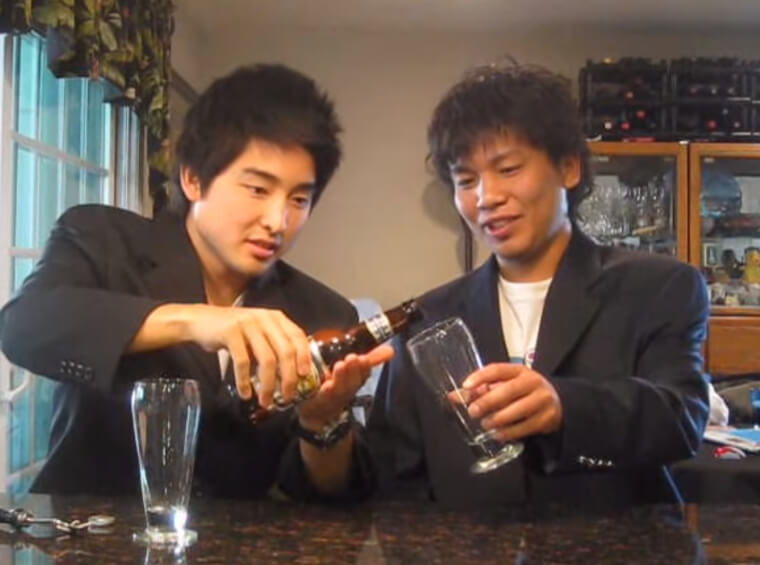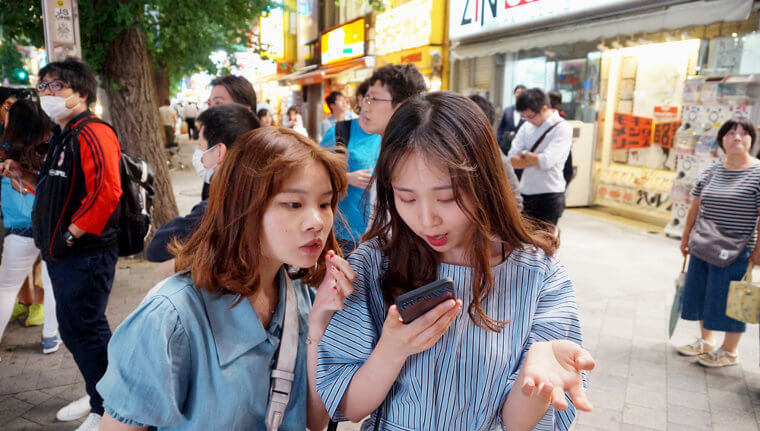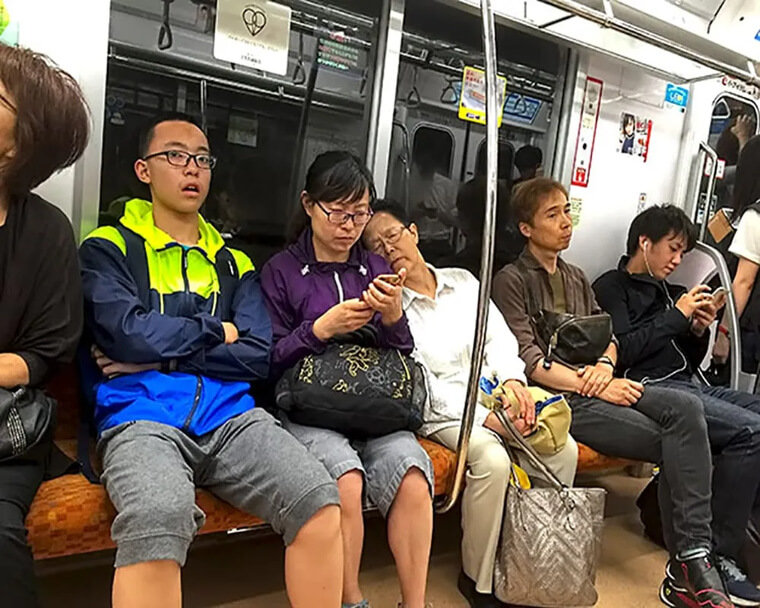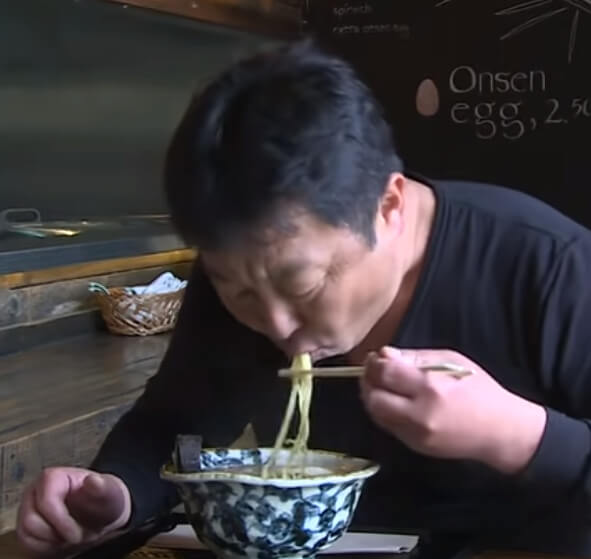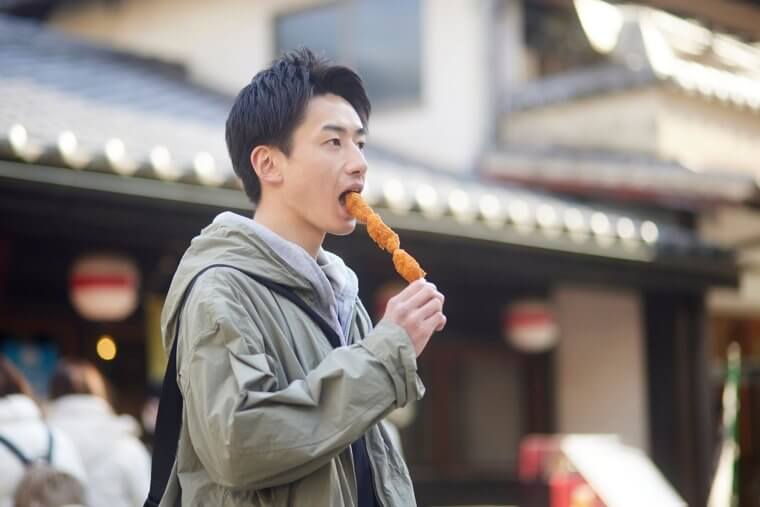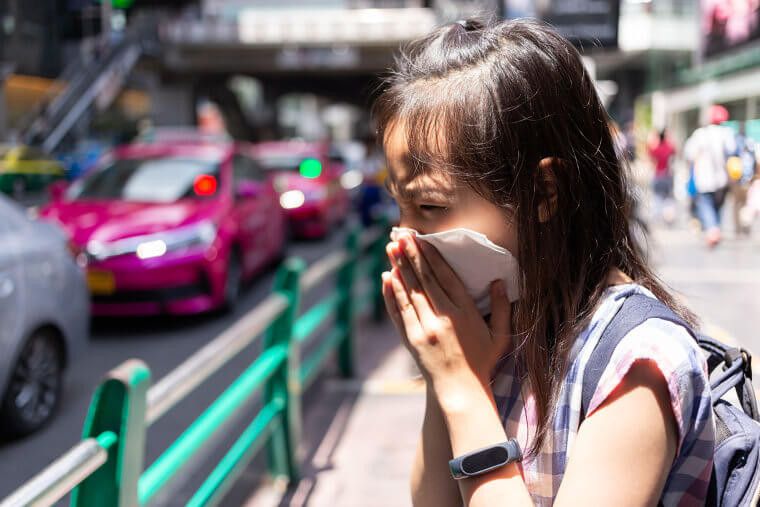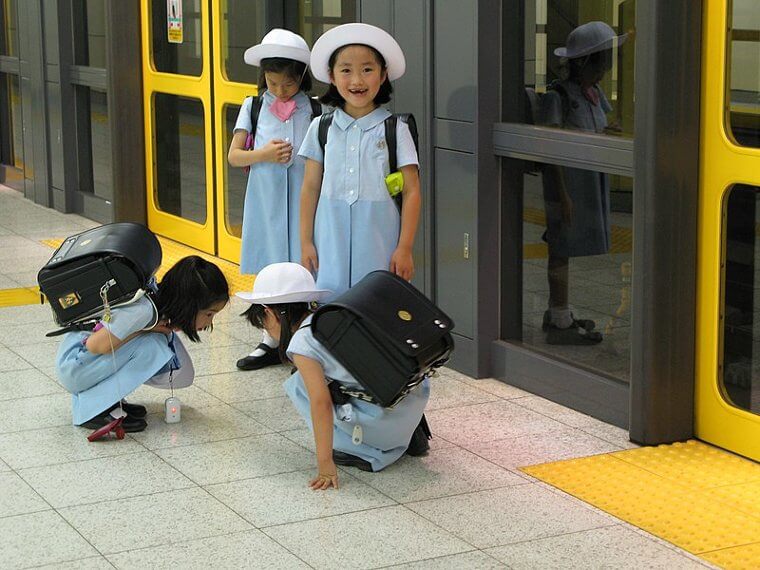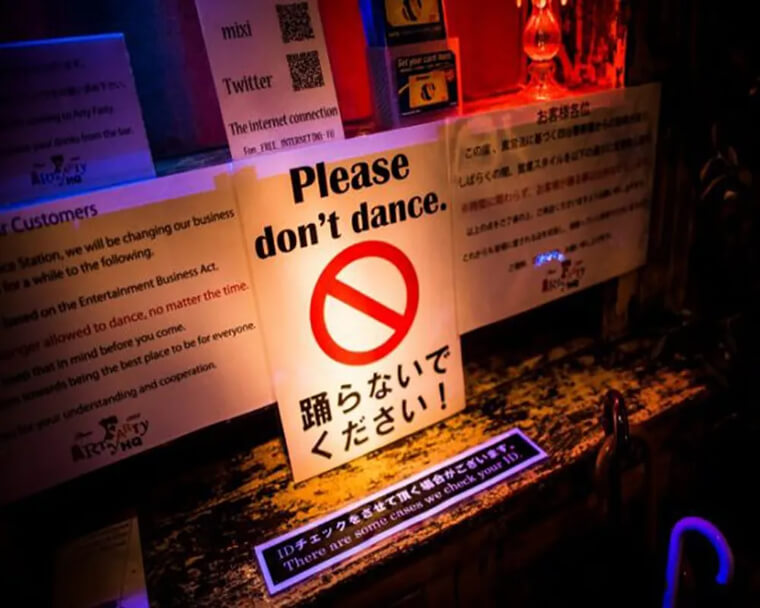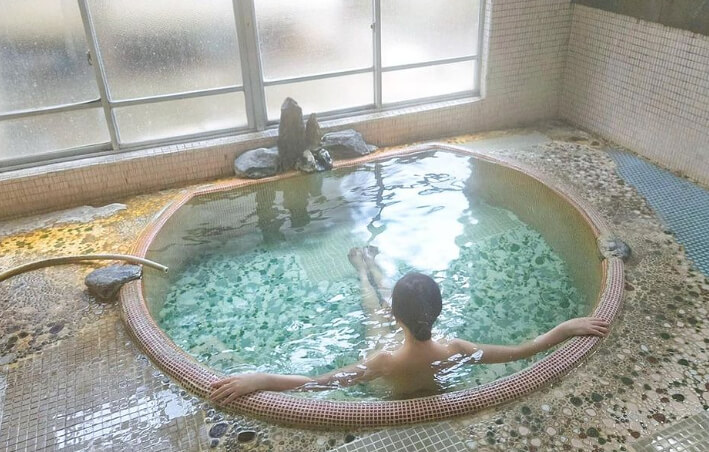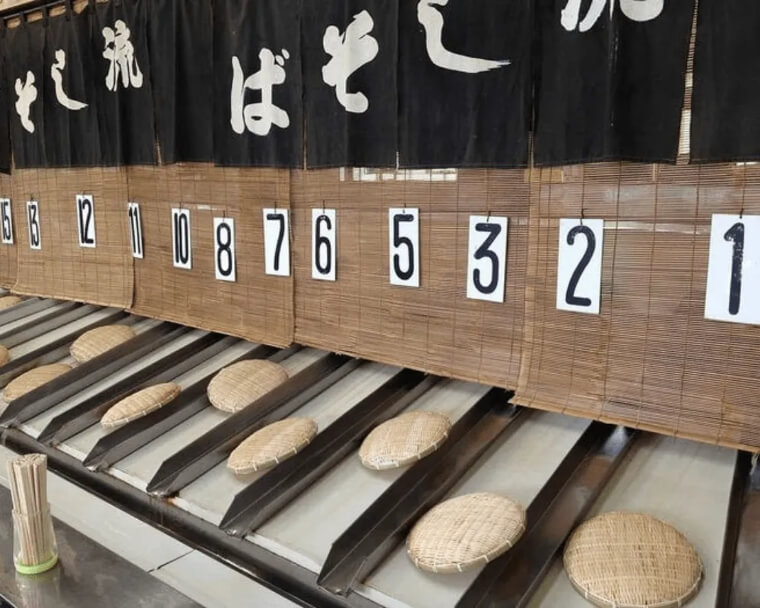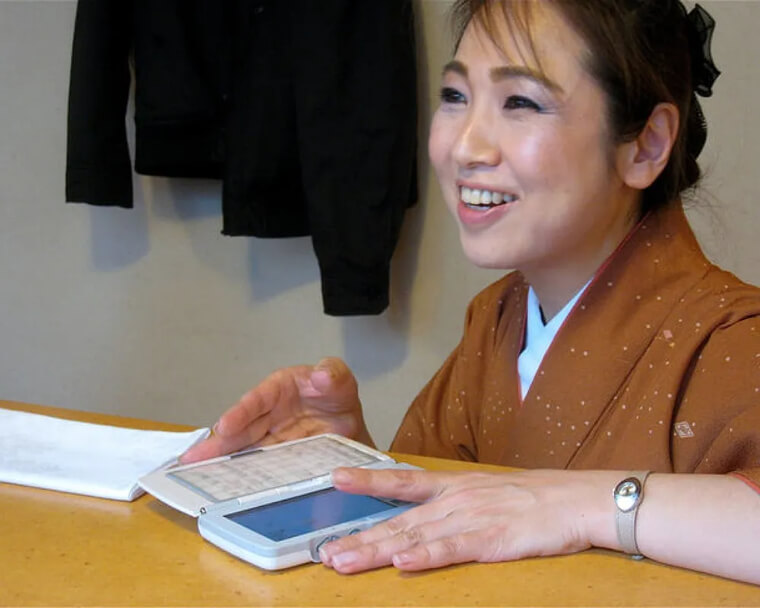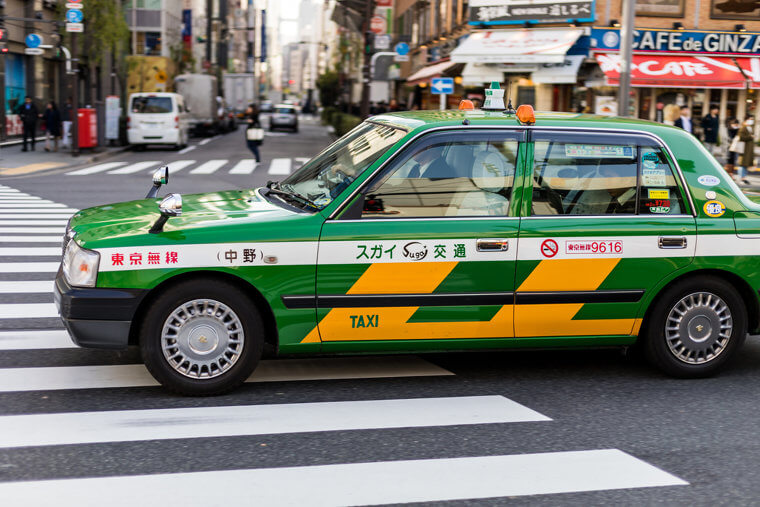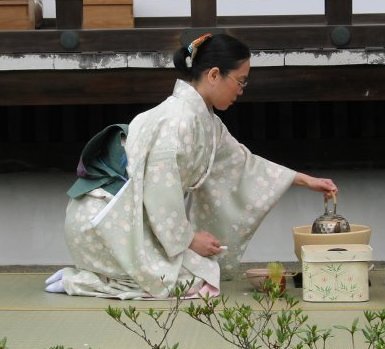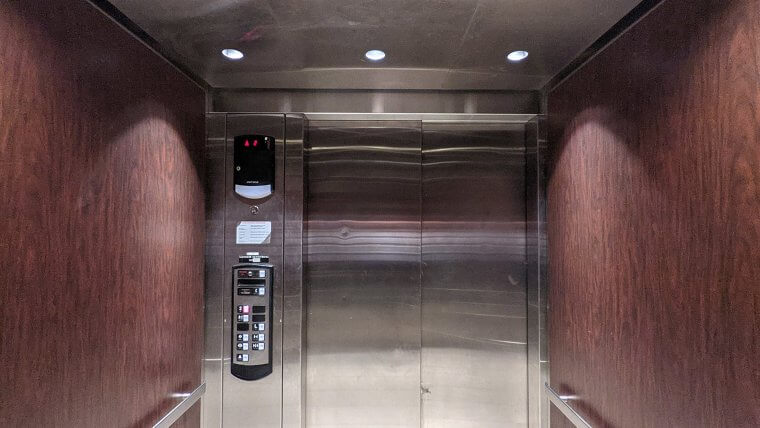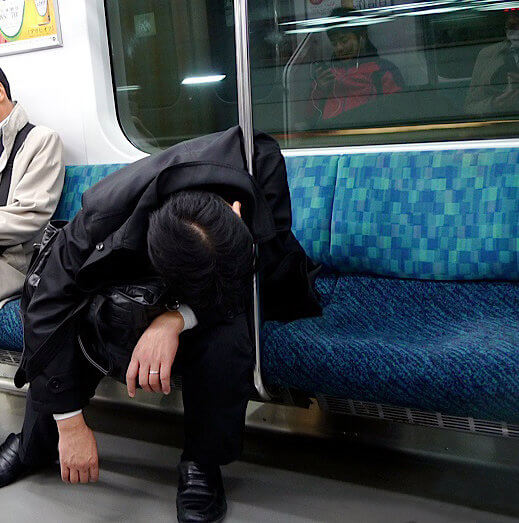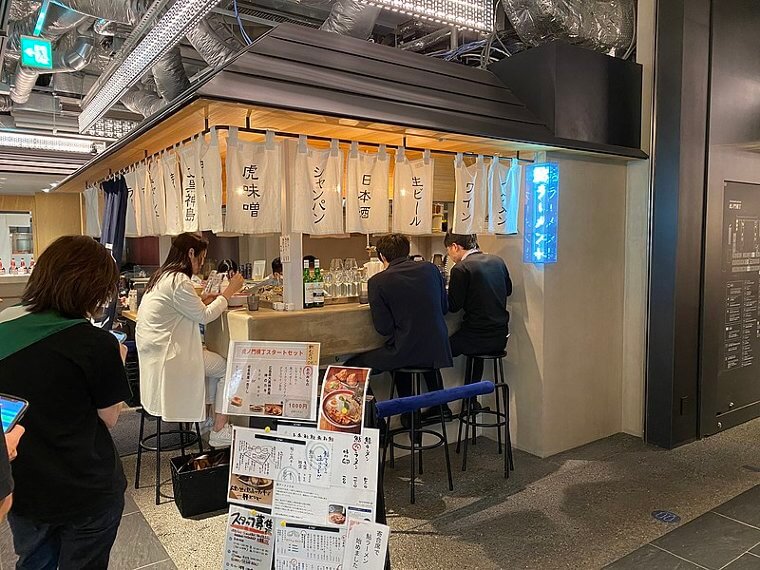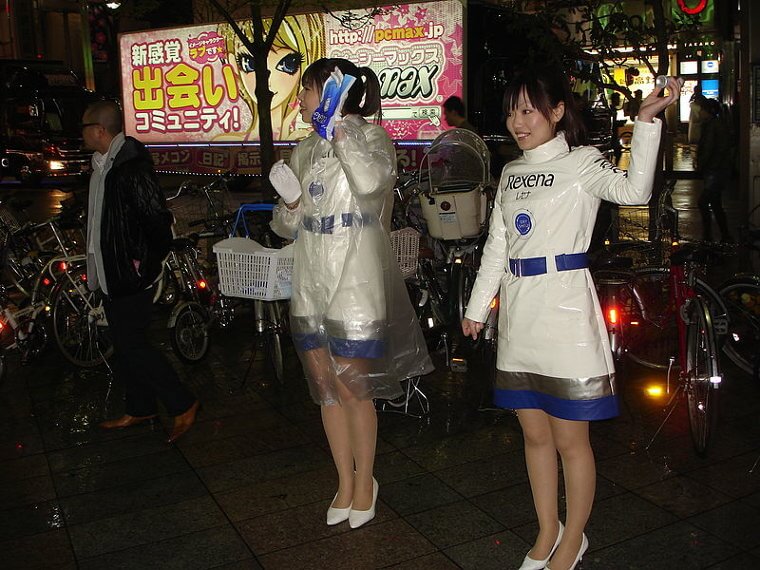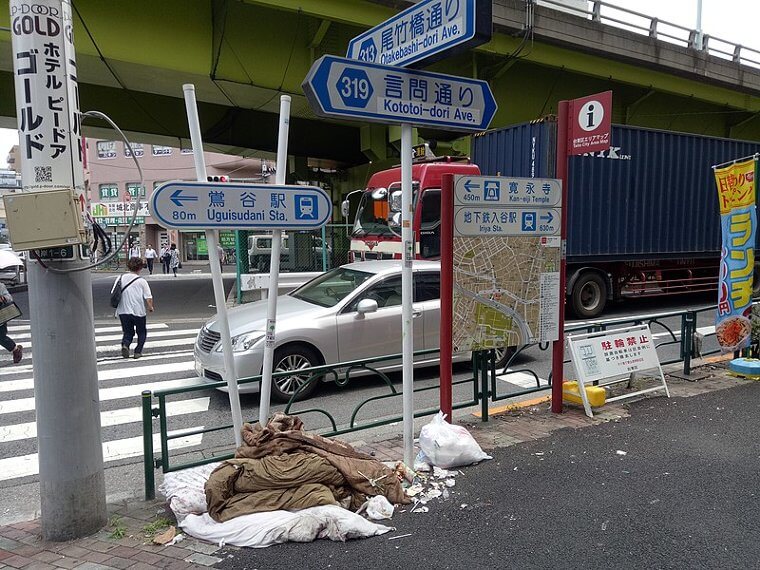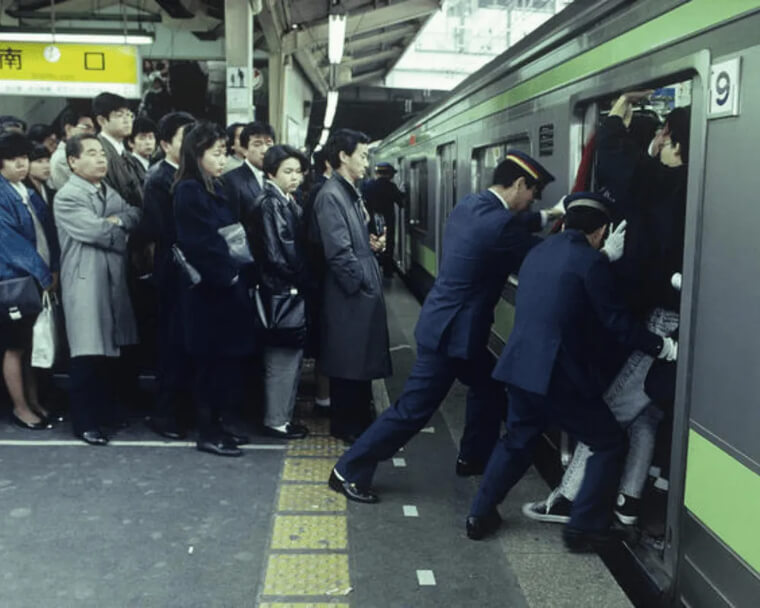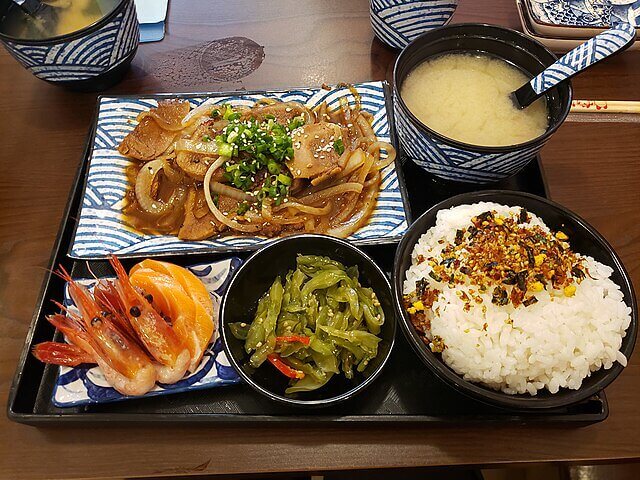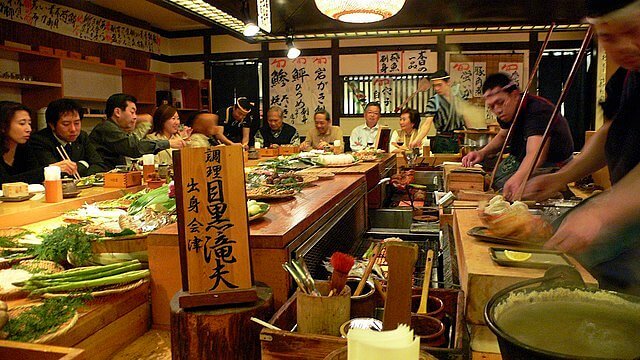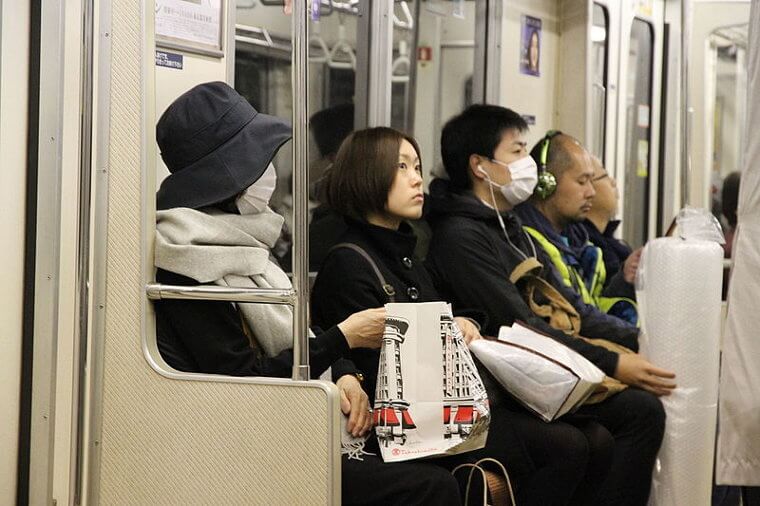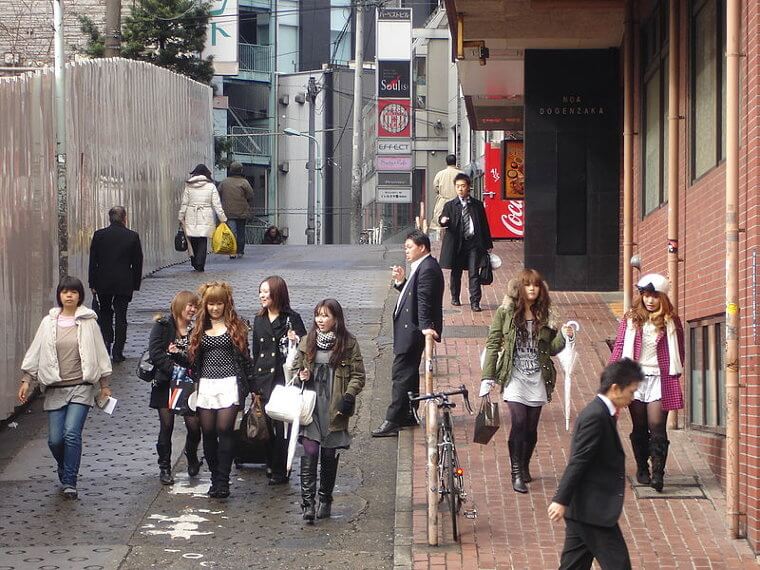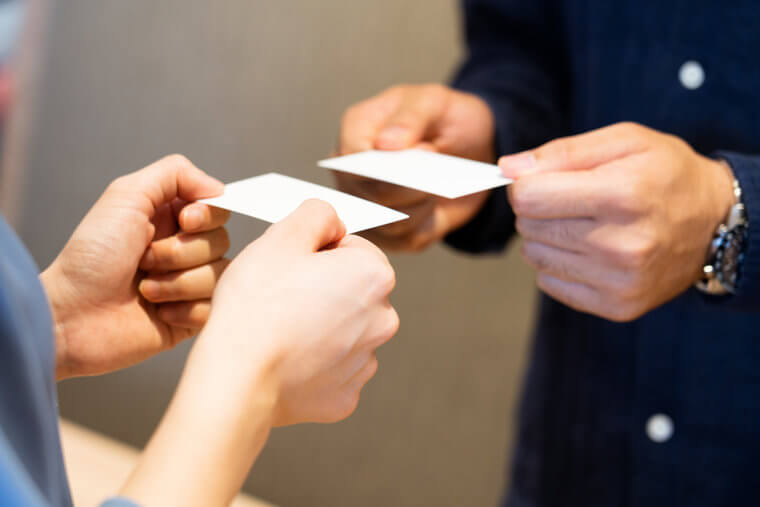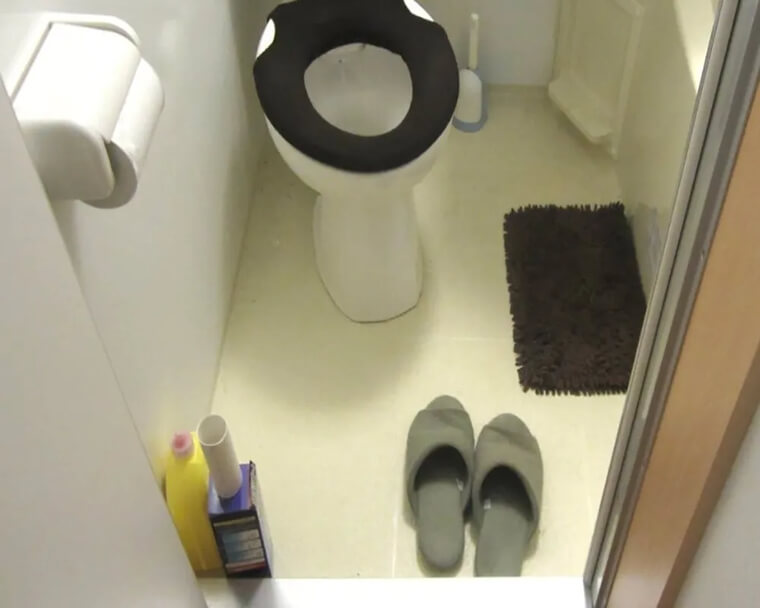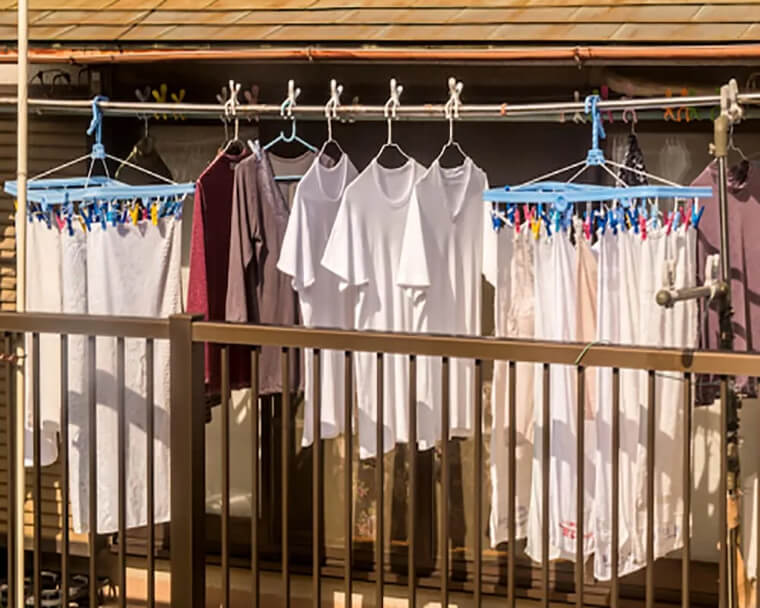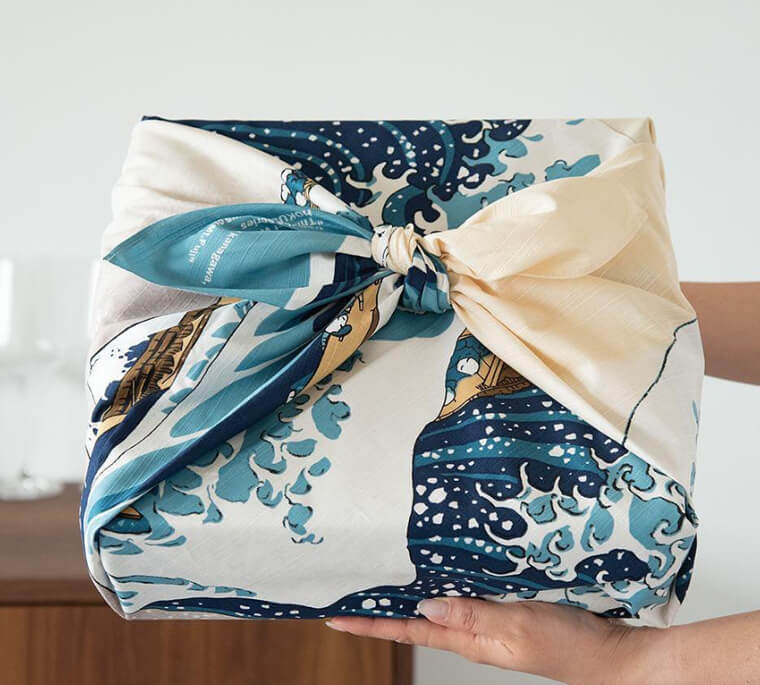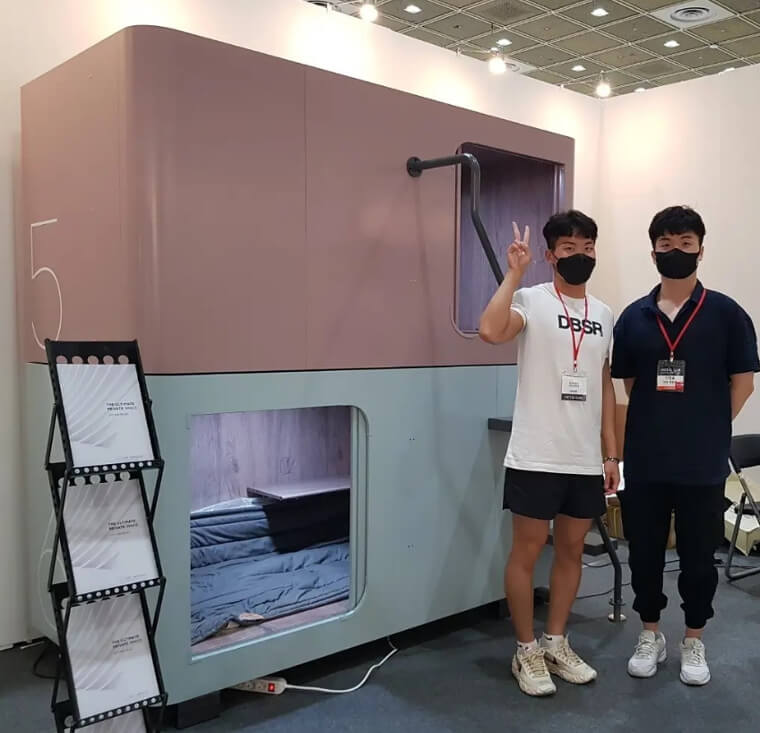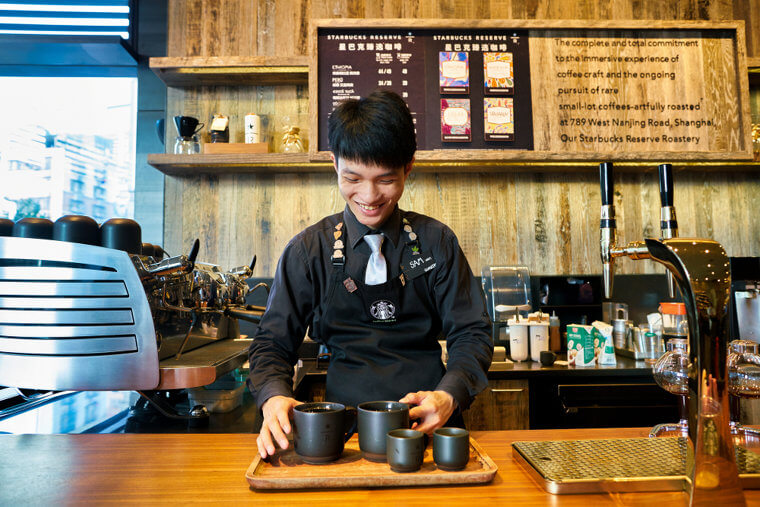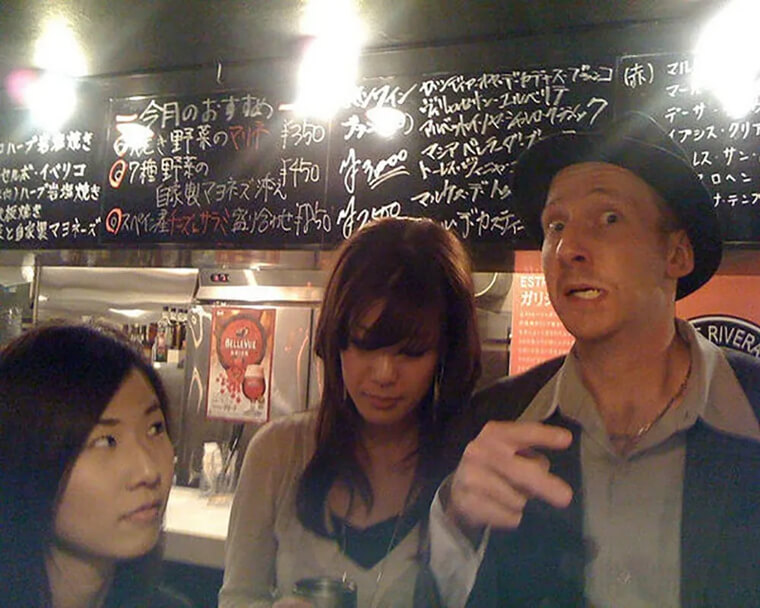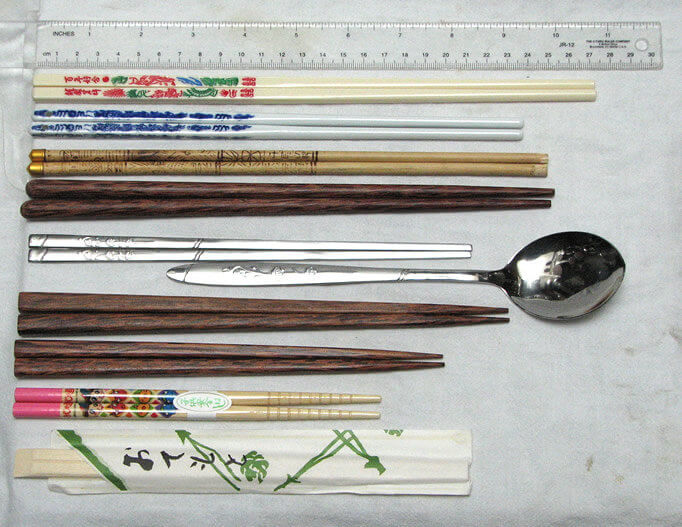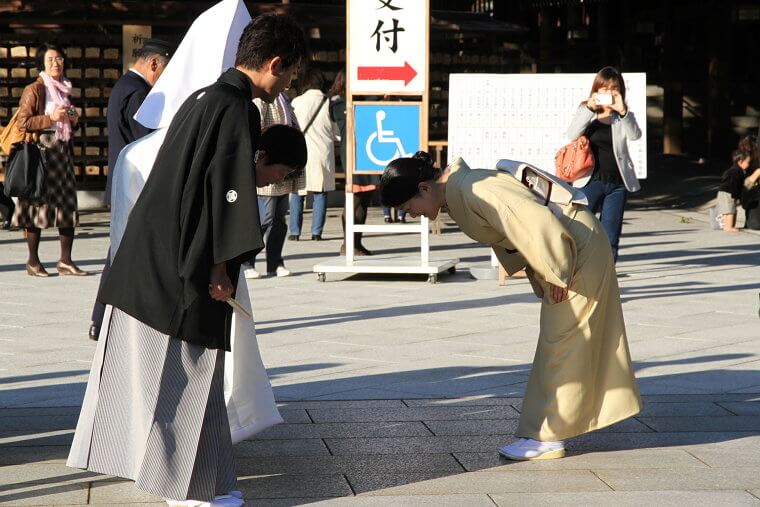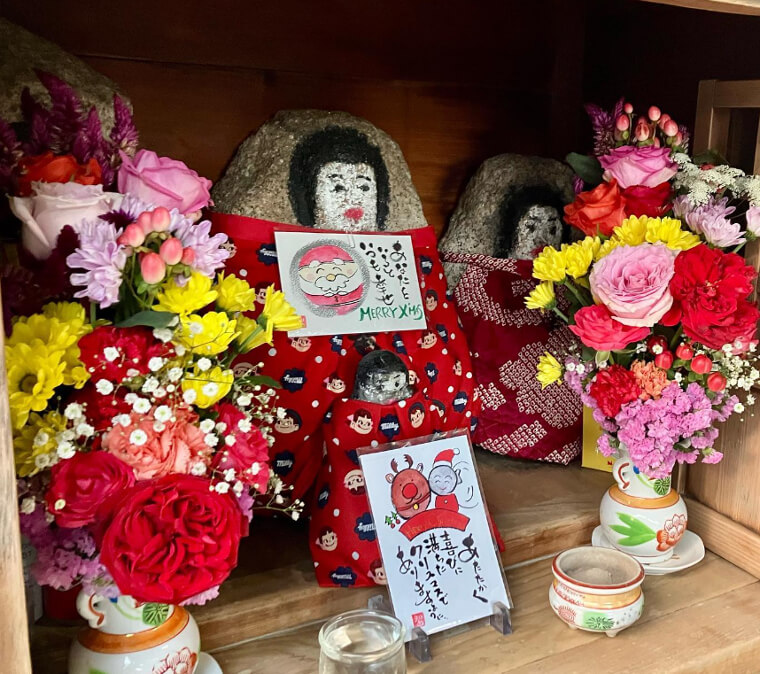Japan is an extremely old country, and as such, it has many cultural traditions that are rooted in centuries of practice. Many of these Japanese traditions are pretty well known to outsiders, such as bowing or eating with chopsticks, but there are also more than a few traditions that are usually hard for foreigners to grasp. Most of these customs are completely unique to Japan since the island nation has enjoyed some degree of isolation throughout its long history. For the most fascinating and bizarre ones, read on!
Proper Pouring Etiquette
No matter where you travel to, there are probably going to be specific customs around drinking and serving guests. Japan is no different. In Japan, it's customary for one person to pour everyone else's drink before having their own drink poured by someone else at the table. This means that it's considered rude to pour your own drink, even if you're the one pouring for everyone else at the table and you pour their drinks first.
After all of the drinks are poured, it's time to enjoy, which usually starts off with "kanpai," which is basically the Japanese version of cheers. After this is said, then it's okay to enjoy your beverage.
Being Loud In Public Is A Bit Taboo
There are a ton of Japanese traditions that are centered on being polite and courteous to others, especially when you're in a public setting. So, it shouldn't come as too much of a surprise that being especially loud while you're on your phone in public is frowned upon. If someone does have to answer a phone, then they usually tend to talk in a low or quiet voice while out in public.
If the conversation is especially personal, then a person may even wait until they're in a place that's private or at home to answer the phone and have their conversation.
It's Frowned Upon To Leave Work Before The Boss
Some Westerners might find this custom a bit different, but in Japan, it's considered a no-no to leave work before the boss. Whereas, in the West, "first one in and last one out" is considered to be a sign of a good work ethic in a boss, Japanese employees are expected to stay at work just as long as their bosses. Japan has a very work-centered culture, so it wouldn't be uncommon for employees to work extra hours if the boss isn't finished yet.
We suppose that you would just have to be hopeful that your boss isn't the type to stay late and work if you were an employee in a Japanese office.
It's Not Uncommon To See Strangers Sleeping On Shoulders
There are a lot of work-centric customs or traditions on this list, and that's because work is a large part of Japanese culture. Many people in Japan tend to work very long hours, which may be why it's considered normal to see strangers sleeping on others' shoulders during commutes on trains and buses. While the Japanese aren't usually big fans of physical contact, shoulder sleeping is tolerated because people work long hours.
So, if you happen to be traveling through Japan and you see people sleeping on shoulders, just know that person probably worked a very long day and they're just trying to get what rest they can.
Slurping Is Okay In Japan
While slurping can sometimes be considered rude or unpleasant in many Western cultures, it's actually expected in Japan. This is because a lot of Japanese foods, such as soups and noodles, are served extremely hot, and slurping helps prevent someone from burning their tongue. It also shows that the person is genuinely enjoying their meal, so in that way, it is considered a sign of respect. However, there is one thing that both Japanese and Western cultures agree on when it comes to dining etiquette.
Belching or burping while at the table is considered totally normal in many Southeast Asian countries, but the same cannot be said for Japan, where it's considered rude.
You Shouldn't Eat While Walking In Japan
As with many other Asian countries, there are a plethora of customs associated with food and eating in Japan. One such custom involves eating while walking. Basically, don't do it. Although, there are a couple of exceptions. Apparently, it's okay to eat while in transit, such as on a bus or subway train. For whatever reason, it's also considered okay to eat ice cream while walking down the street.
It's probably because ice cream tends to melt and won't wait for you to find a place to sit down and eat before doing so. It's also considered okay to enjoy your beverage if you're beside a vending machine.
Don't Use Oshibori To Clean Your Face
If you've ever traveled anywhere, then you probably received a wet towel while on a flight. "Oshibori" are like those, except they're used to clean the hands for praying before a meal. As such, it's considered rude to use these towels to clean your face. We're sure people wouldn't make a big deal out of a tourist doing so, especially if they didn't know any better, but it's still something to keep in mind.
This probably goes without saying, but it's also frowned upon to use these as napkins during a meal. Oshibori are usually kept on the corner of a table, so if you're unsure, just check the towel's location.
Blowing Your Nose In Public Is Frowned Upon
Public etiquette is very important in Japan. There are plenty of things that might be acceptable to do in public in the West, that are frowned upon in Japan. For example, while it's perfectly acceptable to blow your nose in most countries in the West, the act is frowned upon when done in public in Japan. It's simply seen as something that's a bit gross and should be done in private.
For that reason, you may notice that people are sniffling quite a bit if you ever travel to Japan. And the reason may not be that they're feeling under the weather.
Friends Don't Visit Friends' Homes In Japan
Unlike in the West, it's not uncommon to never visit a friend's home in Japan. This is because homes are considered private areas in Japan, and people highly value their privacy in the country. People in Japan usually just go out and do things in public when they're hanging out with friends. This might be one of the reasons there are so many public venues in Japanese cities, such as bars and places to sing karaoke.
This is also worth remembering if you're visiting Japan and a friend doesn't invite you into their home. It's simply not something that's as common in Japan as in the rest of the world.
Drivers Turn Off Their Headlights At Intersections
This custom is probably much more prevalent around the countryside of Japan, but it's still important for visitors and tourists to know, especially if they plan on driving around Japan. It's not unusual for drivers to turn off their headlights when they pull up to an intersection at night. This is done to ensure that headlights don't blind the person at the other end of the intersection as they go to turn.
It also shows just how courteous Japanese drivers can be, which isn't very common in many other places throughout the world. So, if you ever find yourself traveling and driving around Japan, remember to turn off your headlights when you pull up to an intersection at night.
Dancing In Clubs Is Rare
If you're the type that loves to go to the club to dance, then you might be a little disappointed by this next one. In Japan, dancing is prohibited in most clubs. The reason for this comes down to a law that requires a club to have so much space in order to allow club goers to dance. And since real estate is super expensive in Japan, most clubs don't meet the minimum requirement.
You're probably actually more likely to see a sign asking people not to dance than you are to see clubgoers dancing. It might seem weird, but just remember to respect the law.
Taking A Bath While Dirty Is Frowned Upon
This Japanese custom is probably going to make a ton of sense to all of the shower people out there. In Japan, it's frowned upon to take a bath while you're still dirty. This means that it's traditional for people to take a shower and get clean and rid of debris before relaxing with a warm bath. We totally get this one, and it doesn't really seem all that strange at all.
In Japan, soaking in a bath is considered more of a relaxation activity than an actual way to get clean. This is definitely one tradition we could totally get behind.
Number Four Is Considered Unlucky
There are plenty of superstitions surrounding luck and numbers in Asia. For that matter, there are plenty in the West as well (we're looking at you, number 13). So, it shouldn't come as a surprise that Japanese culture has its own unlucky number, which is four. The number four sounds a lot like the word for death in Japanese, so people will go out of their way to avoid the number.
For example, tourists might notice that their hotel is missing a fourth-floor button on their elevator. If their building has over 40 floors, the 40th - 49th might be missing entirely.
Japan Has An Entire Language Devoted To Politeness
"Keigo" is a form of the Japanese language that is meant to be used in formal settings. The language is meant to show respect, and there are actually three different versions of it, making learning keigo all the more difficult. Luckily, the language is usually taught in language schools to foreigners learning Japanese. However, it can be very difficult to master. Not using keigo in a formal setting can be seen as a sign of disrespect.
However, using keigo when it's not required can also be seen as a sign of disrespect. So, one must be aware when it comes to social settings that do and don't require keigo.
Taxis Have Automatic Doors In Japan
Most places around the world have taxis, and Japan is no exception. A tourist traveling through Japan wouldn't be too unfamiliar with Japanese taxis as their similar to their counterparts in other countries in every way except for one. The passenger doors on Japanese taxis are automatic, and they open on their own. As such, passengers should wait for the doors to open for them instead of opening them manually.
This applies even if you're in a hurry, as opening the door on your own can be considered rude or offensive to the taxi driver. It also usually doesn't take very long for the doors to open on their own.
Japanese Ceremonies Require Flexibility
There is a special seating position in Japanese culture that's called "seiza." If you've ever seen a movie or T.V. show set in Japan, then you've probably seen someone seated in this position. It basically requires you to sit on your legs with your posture straight. As you might imagine, seiza takes a bit of practice for foreigners to master first, as you have to be a bit flexible to pull it off properly.
Alternatively, crossing your legs in front of you is also considered acceptable. However, that can also be a bit difficult to do without a bit of flexibility.
The Person Nearest The Elevator Door Pushes The Buttons
Determining who pushes the buttons for a floor in an elevator in the West can sometimes be difficult. However, in Japanese culture, it's always going to be the person nearest the door. You just politely tell that person what floor you want to go to, and they'll push the button for you. This might seem a bit different or even rude for tourists who aren't aware of the tradition at first, but it's perfectly normal.
It also takes a lot of the guesswork out of if you should or shouldn't press the buttons while you're in an elevator. In addition, the person pressing the buttons is the last to get out once they reach their floor.
Pointing Is Considered Offensive In Japan
Pointing out directions may seem harmless in the West, but doing the same in Japan is considered highly offensive. That's because the gesture of pointing in Japan is considered a threat. So, if you were to point out directions and accidentally point at someone while doing so, you'd basically be threatening them. As such, it's not advised that you point when trying to show someone where to go or even when directing someone's attention to something.
Instead, it's much better and more acceptable in Japanese culture to use hand gestures to try and describe something or direct someone's attention somewhere; this way you're not threatening a random bystander.
Working Extra Doesn't Always Equal Extra Pay
Work is taken very seriously in Japan, and as such, the country has among the highest levels of productivity in the world. However, this also means that employees are sometimes made to work extra hours without extra pay. The country has tried to stamp down on this and other work-related issues in recent years, but it still seems to be a problem, and it isn't likely to go away anytime soon.
Officially, workers are entitled to overtime pay in Japan, and their overtime hours cannot exceed a certain threshold, but again, there are many companies that do not follow these rules.
Having An After Work Drink With The Boss
While it's not completely unheard of in the West, most people do tend to try and separate their work life from their personal life. This usually means keeping after-work drinks with the boss to a minimum. However, in Japan, visiting multiple bars with the boss and coworkers after work is customary. This may be tied to the entrenched work culture in Japan, but either way, employees are expected to partake.
If they don't, then it could hurt their office relationships. Of course, this varies by office, and not every boss is going to require their employees to go out bar hopping with them.
Japan's Gender Pay Gap Is Wide
Japan's gender pay gap is extremely wide. It's so wide that it's among the worst in the world, particularly among highly developed nations. That's because women are basically expected to make less than men, and the issue is ingrained in Japanese culture. However, recent Japanese prime ministers have tried to address the issue with middling success. That said, Japanese women are put in charge of finances when they marry.
In fact, husband's are expected to hand over their earnings to their wives so that they can do with as they will. Still, companies in Japan have a way to go in addressing the gender pay gap.
Tourists Won't Find Many Public Trash Cans In Japan
Travelers will probably be a bit annoyed at not finding many public trashcans in Japanese cities, especially considering the number of vending machines in urban areas. However, the reason for this is actually quite interesting. A domestic terrorism attack in 1995 resulted in many urban areas removing public trash cans. However, it isn't really considered that much of an issue since littering is, culturally, not something that you do in Japan.
Most people in Japan will simply store their wrappers in their bags and bring them home with them to throw away. In recent years, trash cans have started to return, but you'll often see them locked up during public events or holidays.
There Are People Pushers In Japanese Subway Systems
Japan has one of the most efficient rail networks in Asia and the world. Millions of commuters rely on these rail and subway lines. Because of this and the sheer number of people living in Japanese cities, the evening commute can get quite crowded. That's why it's not uncommon to see official "pushers" or "oshiya" trying to fit as many people as possible into subway cars during rush hour.
Their entire job is to make sure that they push people into the subway cars and ensure that the doors on the cars are able to shut when things get crowded.
Most Japanese Dishes Contain Animal Products
Japanese food is notoriously delicious. However, vegan and vegetarian travelers might find it hard to find dishes that don't contain any animal products. Even items like soups usually contain sauces that were made using some kind of animal product. There's also just less awareness or interest in veganism in Japan than there is in some Western countries, so travelers might have a hard time even trying to explain what it is they're looking for or want in a dish.
That said, it's not impossible to find vegetarian or vegan dishes but is does require a bit of research before heading out for a bite to eat in the evening.
How To Begin A Meal In Japan
It's not hard to imagine a foreigner or tourist being a bit overwhelmed by the sheer number of customs and traditions associated with food in Japan. However, there's one custom that anyone visiting Japan should know about. When someone offers you a meal, it's considered polite to begin that meal with "Itadakimasu," which roughly means "I humbly receive." This goes for just about any meal you're offered, whether it comes from a stranger or a friend.
It's also worth stating that this is more so a cultural tradition and doesn't really have anything to do with religion, so there's no reason it can't be observed by everyone.
Help Isn't Always Appreciated In Japan
While helping someone with a task is often seen as a polite thing to do in the West, the same isn't necessarily true in Japan. Helping someone in Japan can sometimes be viewed as an attempt to take their job, so it's best to just allow them to do something themselves. This might be due to the fact that employment is highly competitive in Japan — and many other parts of Asia.
It might also just be because people in Japan prefer to do tasks on their own. Either way, you don't want to give someone the impression you're after their job.
Avoid Using Chopsticks To Stab
It's pretty common knowledge that people use chopsticks to eat in Japan. However, fewer people are familiar with the customs surrounding chopsticks and eating. If you're a tourist visiting Japan and you happen to find yourself eating a meal with chopsticks, try to avoid stabbing your food with chopsticks if you aren't used to using them yet. This is because it can be seen as rude to use your chopsticks like a fork.
Instead, hosts and other diners will be far more appreciative that you're at least trying to learn how to properly use chopsticks, even if you're not fully perfect with them yet.
Stay Out Of People's Personal Space In Japan
This may not come as that big of a surprise, but physical touching is not really a thing in day-to-day life in Japan. For example, friends and families aren't greeted with hugs and kisses in Japan and doing so would seem out of the ordinary. This one might take a little while to get used to if you're a visitor to Japan, but it's an important tradition to remember when meeting people.
Interestingly, one of the only public displays of physical touch that is accepted or considered normal happens among strangers. It's not uncommon to see strangers sleeping on the shoulders of others during commutes.
Business Cards Are Respected In Japan
In Japanese culture, business cards are viewed as an extension of one's business and, therefore, one's self. So, there is a bit of ceremony associated with giving and receiving a business card in Japan. They are typically given and received with two hands and a small bow. Not doing it this way could be seen as disrespectful. Business cards are also stored carefully in the pocket and not just crammed in with other cards.
The word for a business card in Japanese is "meshi" and there are actually a lot of other customs associated with business cards. Curious travelers expecting to visit Japan can find resources on business etiquette online.
Everyone Has Bathroom Slippers In Japan
Most homes in Japan are shoes-free, meaning that guests take off their shoes upon entering a home and leave them by the door. Because of this, most people keep a pair of bathroom slippers for people to wear when they go into the restroom. These slippers can be worn by anyone visiting the home, but they should be put back just as they were found, as not doing so breaks etiquette.
Using these slippers to walk around the home is also considered rude, so make sure you leave them in the bathroom if you ever visit a home in Japan.
Karaoke Etiquette Is Important In Japan
Kaoroke is probably one of the most popular pastimes in Japan and in many other parts of Asia. However, it comes with its own set of rules in Japan. People are expected not to join in when someone is singing karaoke and to let that person finish their song. Interrupting or joining in can be interpreted as being rude or offensive, so it's best to wait your turn when you're out singing karaoke.
Karaoke is on of the most popular activities in Japan, so visitors can bet that they'll find themselves out doing karaoke at one point or another while in Japan.
Laundry Day Is Every Day In Japan
If you're a tourist visiting Japan, then odds are you're going to notice that there always seem to be clothes that are out and hung to dry. That's because people do laundry every day in Japan. It's considered unclean to wear a piece of clothing more than once without washing it. The same is true of some items in the West, but not to the degree it is in Japan.
Clothes dryers are also not as common in Japan as they are in some countries in the West, so expect to see a lot of laundry lines when visiting Japan.
Visitors Are Expected To Bring Gifts
As in some other countries throughout the world, visitors are expected to bring a gift with them when they're being hosted in a Japanese home. This gift must also be wrapped. In addition, there are a couple of other customs around gifts that visitors must be aware of in Japan. Unlike in other situations, where someone may initially try and reject a gift, hosts must accept gifts as soon as they're offered.
A failure to bring a gift or for the host to accept a gift can be seen as rude or offensive. In short, know you're gift-giving customs before visiting a Japanese home.
Sleeping Capsules Are Common In Japan
Cultural traditions and norms around sleeping in Japan can be a bit quirky. Maybe because of the deeply entrenched work culture of Japan, it's normal to see people taking a nap just about anywhere they can. Because of this, sleeping capsules or extremely small hotel rooms have become quite popular in Japan. These tiny rooms cater to people that just need a place to catch some shut-eye between shifts or thrifty travelers.
Apparently, they're much cheaper than hotel rooms, so honestly, they seem like a good option if you're traveling through Japan and you're trying to save some money, despite their small size.
Tipping Is Offensive In Japanese Culture
There are a couple of common themes among all of the Japanese traditions on this list, and one of those themes is respect. As such, it's considered rude or degrading to tip people in Japan. Visitors should be aware of this and not be too surprised when tips are returned to them in a polite manner. If you really want to show your appreciation for a service or deed someone has done for you, gifts are more acceptable.
That said, there are a couple of occasions when tipping is accepted, but even then, there are certain customs that are expected to be followed by those leaving the money.
Drinking Soup From A Bowl In Japan
Here's one that's opposite to most customs in the West. Sipping your soup from a bowl is perfectly fine in Japan, and it's even preferred to using a spoon when the soup is almost finished. Travelers need not worry when it comes to sipping up soup directly from the bowl, which is a good thing because there are sure to be plenty of occasions where soup is part of the meal.
In Japan, most meals are accompanied by some sort of broth or soup, and it can be considered rude to not lift the bowl up and have a taste directly at some point in the meal.
Direct Speech Isn't Used In Japan
While direct speech can be quite common in many countries in the West, the same is not true of Japan. People are more likely to talk indirectly about an issue or drop hints during a conversation. This is probably due to the fact that politeness is considered very important in Japanese culture. Either way, you're not likely to hear speech that could be considered confrontational while hanging out with people in Japan.
For some, this indirect way of addressing things might seem a little bit difficult without practice, but being too direct can also come off as rude or offensive in a social setting.
Customs Surrounding Chopsticks
Chopsticks are important to Japanese culture and as such, there are a couple of things visitors should keep in mind while they're in Japan. For example, chopsticks are first and foremost, eating utensils, so using them for anything other than eating is frowned upon. Waving chopsticks in the air or using them to point at something is considered bad manners. There is also a certain way they should be set down when a meal is finished.
In Japan, chopsticks should be placed right next to one another on top of a plate when someone is finished with their meal. They should never be placed on the table or crossed.
Bowing Etiquette In Japan
It's probably not a surprise that bowing is the traditional method of greeting in Japan, but there are a lot of other aspects of bowing that foreigners usually don't think about. For example, there are different methods of bowing that are used in different social settings in Japan. When greeting friends, people usually use a quick and simple slight bow. However, this would be considered rude in a more formal setting such as work.
In professional settings, people are expected to take a longer and more acute bow. Of course, not doing so could be interpreted as a sign of disrespect.
Christmas In Japan Is A Little Different
Christmas in Japan is a little different than it is in the West. That probably has something to do with the fact that Christianity isn't as popular in Japan. However, the holiday is still celebrated. It just looks a lot more like what we think of when we think of Valentine's Day. Couples will usually visit their favorite restaurant and maybe exchange gifts afterward. Gifts aren't given to family members during Christmas in Japan.
There are a couple of different opinions out there as to why Christmas is actually a thing in Japan and when it took hold, but most accounts have something to do with missionaries.

